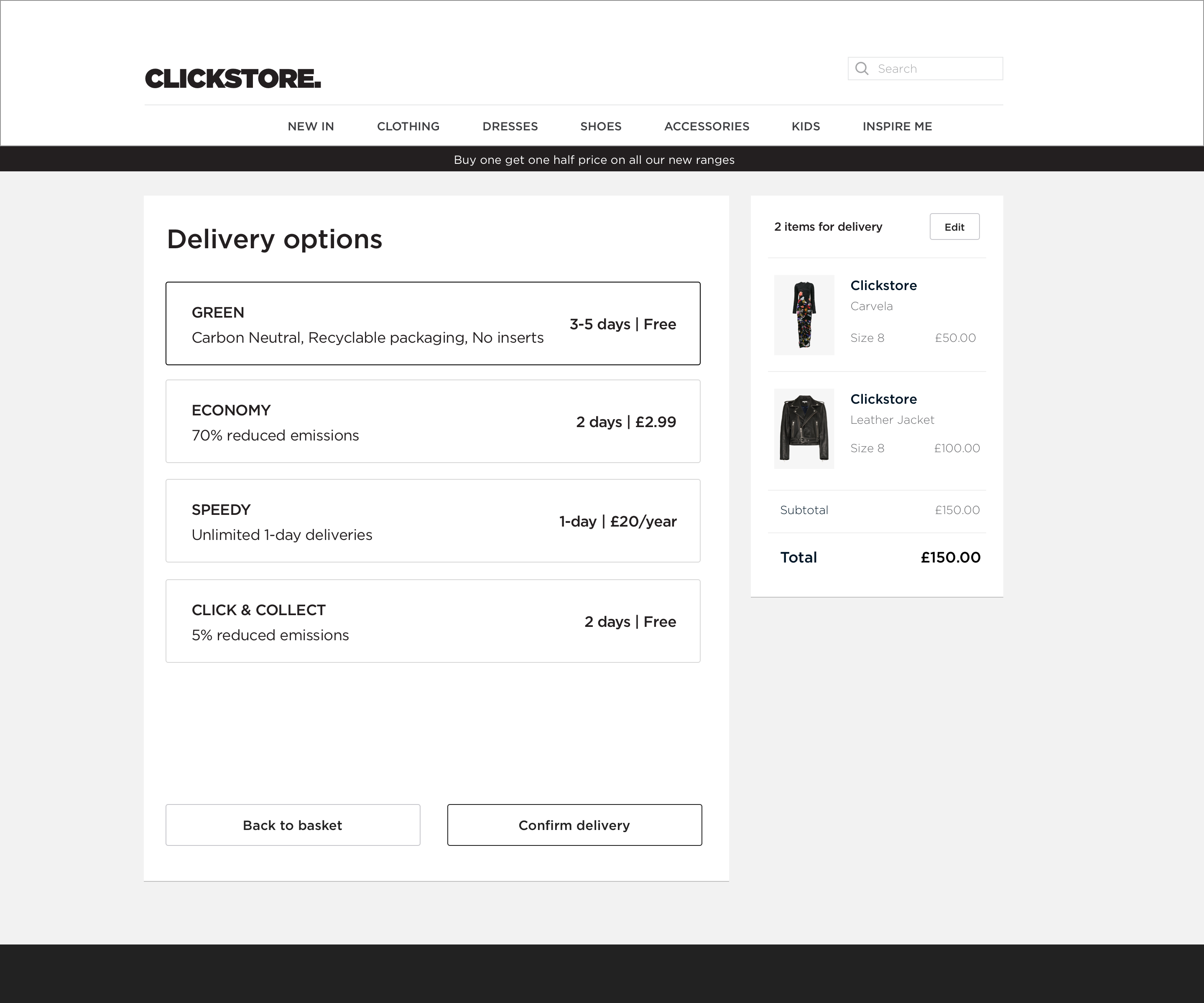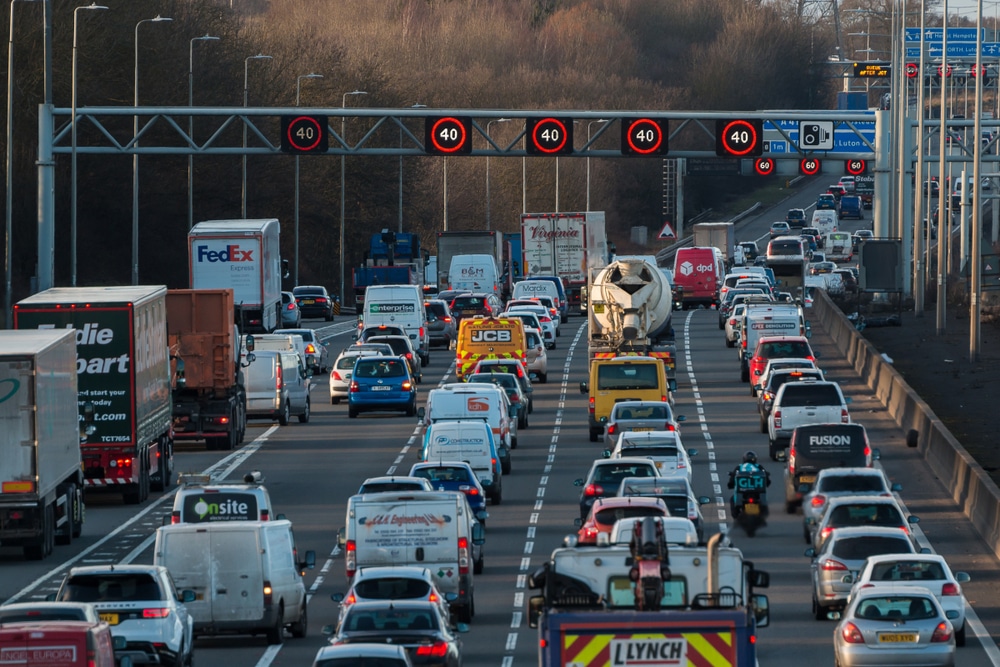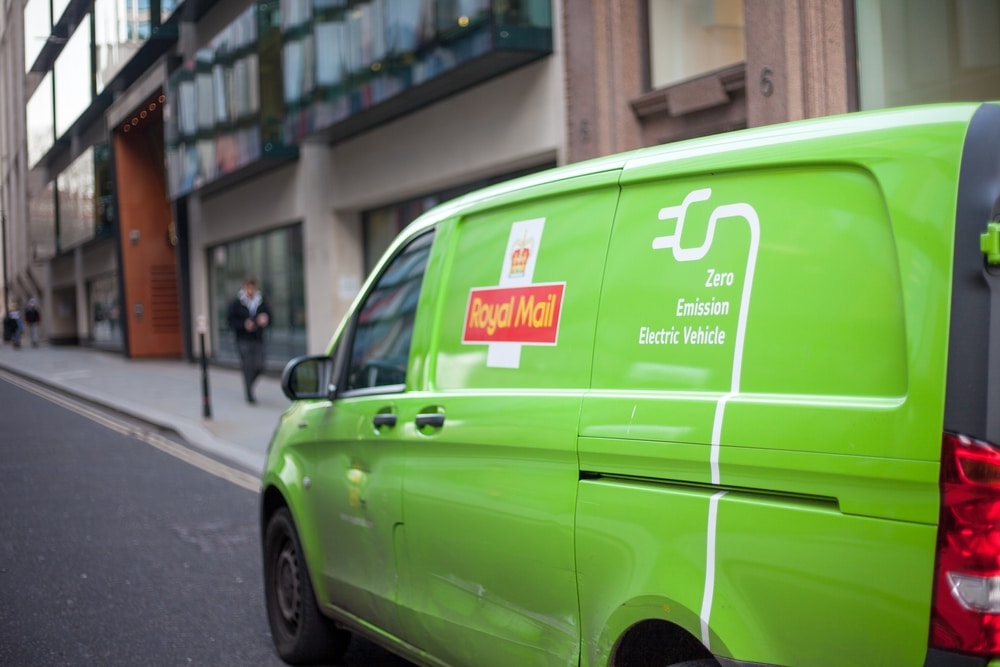Insight / Blog
Sustainable ecommerce is an oxymoron

I can’t stop thinking about sustainability. No, really. Between the big world news of bushfires & ‘doomsday’ glaciers and the smaller world of parcels I inhabit where we’re obsessed with electric vehicles and consolidation, it’s hard to avoid thinking about the future and how we can keep going without using up our scarce resources.
Perhaps fortunately, I’m not alone. Environmental consciousness has well and truly entered the zeitgeist. Blackrock CEO Laurence D. Fink, Greta Thunberg and Prince Charles might sound like an unlikely trio of musketeers, but all three are now apparently aligned on making the world more sustainable. Of course, there is an undeniable hypocrisy about at least two of those three – Prince Charles making his big sustainability splash at Davos, where most of the attendees popped into Switzerland on private jets, or the CEO of actual, literal BlackRock saying that sustainability is deeply important to him while his company goes hard investing in bond offerings from Saudi oil companies.
Anyway, the point is that when even Mr Fink has to start making the right noises about being green to appease the gazillions of clients that Blackrock represent, it’s not just school kids who are actively concerned about the future. And that’s not to dismiss the kids either. An entire generation of younger consumers (soon to be the prime target of retail everywhere) really, really care about this.
The Wunderman Future Shopper Survey 2019 reports that nearly two thirds of 6-16 year-olds (63%) want to do a job that helps to save the planet. Idealistic, yes, but representative? Double yes. Wind back 10 years and that figure would be in single digits.
eCommerce isn’t prepared for this
With the mainstreaming of sustainability, retailers now have to start thinking about their whole business, unit by unit, with sustainability in mind. Customers are beginning to demand it. Of course, it’s not a retailer’s job to teach customers how every part of their operation works and its environmental consequences, but you’d better believe that customers a) care, and b) will find out if you’re for real eventually. This is especially true when it comes to ecommerce and delivery.
eCommerce is becoming a social problem. Specifically, ecommerce delivery is starting to have the kind of problems you’d expect of a system massively outgrowing our city and town infrastructures. You’ve got pieces coming out in the New York Times about ecommerce deliveries clogging up the city’s vital roads, in Buzzfeed on Amazon Delivery Service Partners (i.e. Amazon’s outsourced logistics capacity) running people down, and in the FT on the environmental impact of one-day delivery. It’s news now, but soon it will be old news to consumers that ecommerce delivery is bad for their neighbourhoods and their world. eCommerce delivery risks being seen as implicitly bad for society.
Put simply, sustainable ecommerce is a bit of an oxymoron. We’re going to need to do a bit of mental re-wiring for it to work.
How can retail respond?
So what to do, as a retailer reliant on a lively ecommerce market in an otherwise trying period for the industry?
There’s a concept in military history called an RMA, a ‘revolution in military affairs’. The podcast I was listening to this morning on the bike into work – Hardcore History if anyone cares – gave a great example. When Japan entered WWII, the British had two of the biggest and most powerful battleships in the world, located in the South China Sea. These ships were promptly sunk for the loss of just two planes, by a Japanese aircraft carrier parked out of range, using air superiority to achieve massive success for comparatively minimal loss. That moment shaped the rest of naval military history, and the aircraft carrier became the essential factor in naval combat. It’s the perfect example of a paradigm shift, where the rules seem to suddenly change and things re-order themselves.
The ecommerce paradigm will have to change. Sustainability is becoming the default way to think about everything. eCommerce retailers can ride that wave and achieve outsized wins, or be sunk by a failure to anticipate and adapt.
In my view, the response from retailers must be to change the default approach from trying to make consumers think as little as possible before purchasing, towards a checkout process where they are active and consciously able to choose between delivery options with clear information highlighting environmental benefits. Rewiring consumer’s brains might sound like a huge task, but the patterns of thought are already there thanks to constant news coverage and awareness raising.
There’s a ton of examples of systemic behaviour change – from recycling to plastic bag re-use to smoking in bars and restaurants. They typically work in three phases.
Education and awareness: we learn about the ills of a behaviour considered normal or the benefits of a behaviour we have not adopted
Adjustment: we have to consciously choose to alter our behaviour in light of the new information (and often, new incentives or disincentives)
Acceptance: new behaviour becomes habitual and the norm
Daniel Kahneman, a Nobel Memorial Prize-winning psychologist, has a theory of two modes of thought, which he calls System 1 and System 2. System 1 is rapid response and habitual, whereas System 2 is a slower, more reasoned approach.
Retailer checkouts are designed for System 1. They’re as ‘frictionless’ as possible, offering as little opportunity for reconsideration as they can, with the goal of maximising conversion. The problem is that behavioural change doesn’t happen in System 1. So, when we get delivery options that just show a number of days and a price, we’re not being given the rest of the information that might put us into a System 2 mode. How different is it if we are given just a bit more information?
A checkout concept for the sustainable future
Imagine consumers were presented with four options:

The opportunity here is to break customers out of that System 1 pattern in the checkout by highlighting those options which reduce greenhouse emissions, air and noise pollution, and congestion.
Some retailers are ahead of the curve. Ocado has highlighted green delivery times in its checkout for years – these are times when a van will already be in the area to make a delivery. Amazon is using a huge rollout of PUDO locations to consolidate more of its deliveries and drive fewer miles per parcel, as well as an ‘Amazon Day’ option where consumers choose a day of the week to receive all their deliveries on, self-selecting for consolidation.
Sustainability feels sweet
There’s scientific proof that consumers get a release of oxytocin – the ‘happy’ hormone that’s released during sex – when they feel they are making sustainable choices. So retailers need to find ways of nudging them towards these feel-good conscious decisions. By following the blueprint of other behavioural transformations in an authentic way, retailers can make sustainable delivery core to their brand, communicate its value to their customers, and continually capitalise on the growing consensus among shoppers that sustainability is essential.
Topics:
Related articles
Convenient and sustainable: developing an out-of-home delivery strategy
Sustainability has become a key decision factor for retailers - here's how carriers can stay ahead with an out-of-home delivery strategy that’s both sustainable and convenient for consumers
Regulation is coming for European ecommerce logistics
European postal operators and carriers need a plan to deal with increasing last-mile regulation.
Royal Mail: ‘Environment is the next battleground’ – why carriers need to act on sustainability
Environmental progress isn’t a far-away ambition or personal target – it’s becoming a crucial requirement for securing clients.













